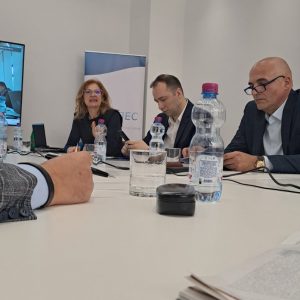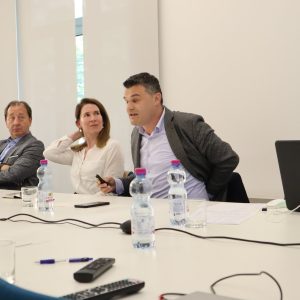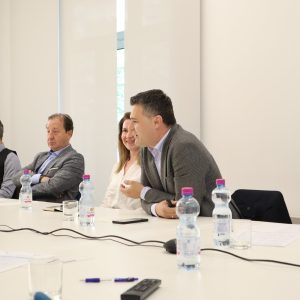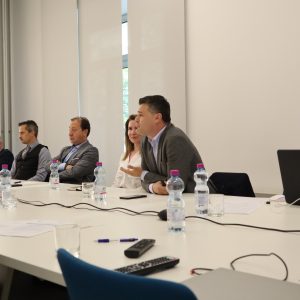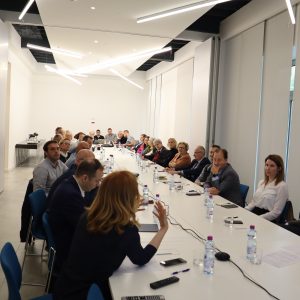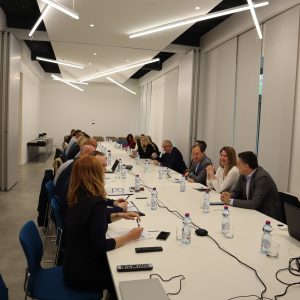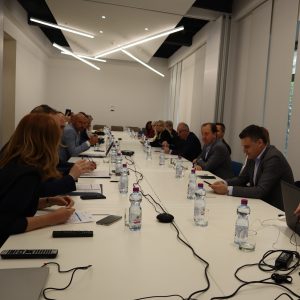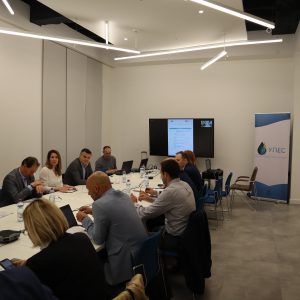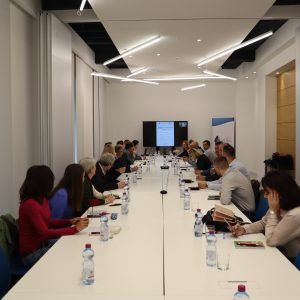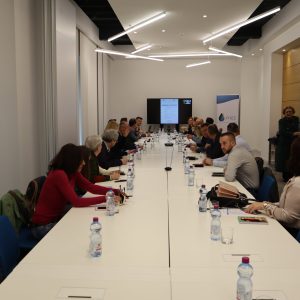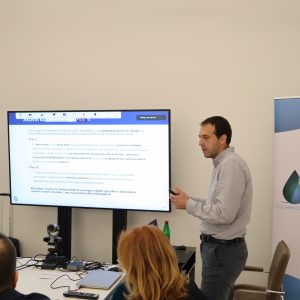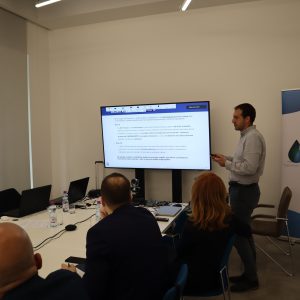Workshop “Who are and what do aggregators in the electricity sector?” held
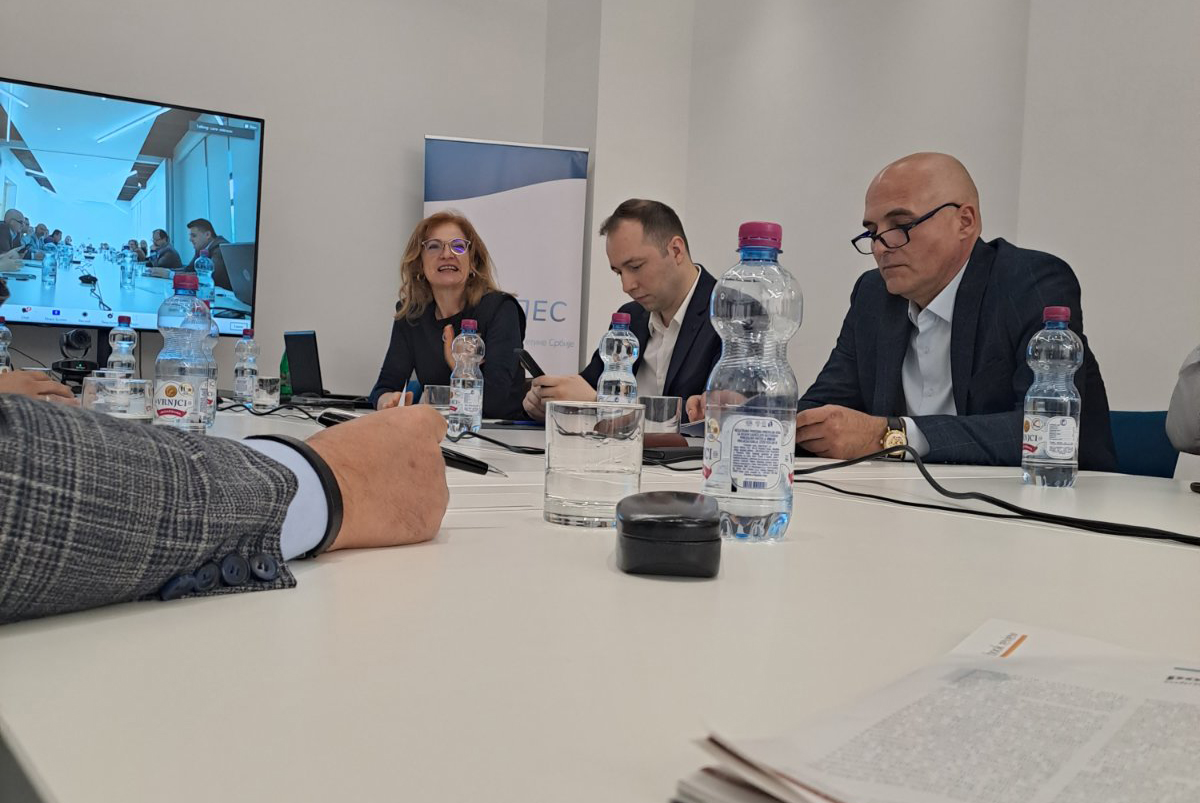
On May 15, 2023, in the organization of the Serbian Energy Law Association (UPES), and with the support of the Serbian Chamber of Commerce as well as the Heinrich Boll Stiftung Foundation, a workshop was held with the title: Who are aggregators and what are they doing in the electricity sector?
The workshop was opened by Rade Mrdak, Advisor to the Minister in the Ministry of Mining and Energy, saying that this topic is extremely important, at a time when the different ways of regulating the role and activities of new participants in the electricity market are being considered.
The participants of the workshop were also welcomed by Tibor Moldvai, program coordinator of the Heinrich Boll Stiftung Office in Belgrade, who pointed out that the role of aggregators in the electricity market is one of the modalities of contributing to the Green Agenda.
UPES President Dr Branislava Lepotić Kovačević, as moderator, briefly pointed out that aggregation in the field of energy can have different meanings and that this workshop was designed to clarify this and invited panelists to contribute with their presentations.
Radoš Čabarkapa, Head of The Planning and Analysis Service, Power Portfolio Management, Electric Power Industry of Serbia, pointed to the fact that the need for flexibility is one of the challenges of the energy transition, and that aggregators are important for establishing the flexibility of thе power system. He presented on the example of Germany how with the growth of the share of variable RES in the production mix, the need for flexibility of the power system increases, and what are the effects of aggregation on the electricity market through business models of using aggregation.
Vojkan Vučković, Director of the Sector for Development of the Electricity Market, EPS – Supply, explained that aggregation as an activity has long been applied in the field of electricity and that this is done by the Guaranteed Supplier, but that it is necessary to distinguish the activity of aggregation (harmonization of electricity production and consumption) from the role of an independent aggregator in the open market of electricity, regulated by the Directive of the European Union 2019/944.
Aggregation as an activity has an energy saving component that has been applied to customers in the household category in the period from October 1, 2022 – to March 31, 2023 and has yielded results.
Predrag Matić, Director of the Planning and Investment Directorate and Dunja Grujić, Senior Analyst for Business Processes for Market Support and Loss Reduction, Elektrodistribucija Srbije d.o.o. Belgrade, spoke about aggregation and electricity distribution services, the benefits it provides, but also the necessary conditions for dealing with this activity in the context of aggregation contracts, and the calculation of fees for access to the system. They emphasized the importance of investing in the electricity distribution system, so that the functional requirements placed before the operator can be fully realized.
Marko Janković, Director of the Electricity Market Sector at CWP Global, pointed out the importance of flexibility and investment services in electricity aggregation, four principles on which the flexibility of power engineering relies (decarbonization, digitalization, decentralization and democratization). He explained the difference between implicit, explicit and mixed flexibility, and flexibility services that can be provided by independent aggregators to the power system and which are needed to be provided to producers of energy from renewable energy sources, for their integration into the power system, as well as what needs to be realized for the implementation of flexibility services.
Dr Ilija Batas-Bjelić, Research Associate, Institute of Technical Sciences of SASA gave an overview of what aggregation offers and where it leads as such, what are its main advantages and disadvantages, emphasizing the importance of energy green transition and investment in RES, as well as the need for continuous education and acceptance of new knowledge, so that trends in the development of the power system can be followed, but also how it could be contributed to the development of this system, and Branislava Lepotić Kovačević added that UPES has, as its main goal, contribution to the affirmation and acquisition of knowledge in the field of energy law.
During the lectures and after them, the lively discussion of the participants of the workshop contributed to the understanding of who and aggregators are and what are they doing in the electricity sector.
The workshop was attended by more than eighty participants (live and online).
The workshop program is available here.
The workshop presentations are available here: Radoš Čabarkapa, Vojkan Vučković, Predrag Matić/Dunja Grujić, Marko Janković, dr Ilija Batas-Bjelić
Video of the workshop is available here.
See the photo gallery below:
